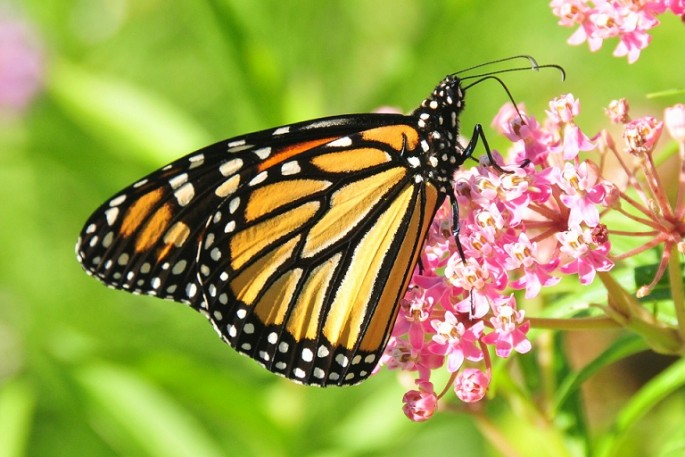In the effort to save the monarch butterfly declining populations, the U.S. Fish and Wildlife Service will be funding a new initiative worth US $20 million, announced agency officials last Thursday, August 20.
According to Fish and Wildlife Director, Dan Ashe along with U.S. senator Amy Klobuchar, the agency has already dedicated $4 million every year in the span of the next five years to support the monarch population which is a pivotal cultural icon that is now on the brink of being included in the endangered species list.
Prior to this financial support, the White House already made an announcement about its support for the revival of the pollinator species that will include crucial efforts to restore its habitat.
Ashe also adds that during a recent monarch celebration regarding its conservation efforts at the Minnesota Valley National Wildlife Refuge, this money will be distributed among partners in order to conserve the monarch especially its breeding and migration habitat to become areas of priority across the U.S., that includes Minnesota.
The efforts will also include propagation of milkweed via seeding that is native to the monarchs' prairie corridor habitats along Interstate 35 beginning from Duluth to Texas.
According to Karen Oberhauser from the University of Minnesota who is also a scientist providing advice to federal agencies to carry out plans to save the monarchs, this funding initiative is more proof that this butterfly issue is truly gaining more critical support. In addition, Tom Melius is also present at the event last Thursday who is the Midwest regional director for Fish and Wildlife and a key decision maker of this funding initiative to save the monarch butterfly.
Oberhauser who is also the chairman of the Monarch Joint Venture that comprises of scientists, conservationists, and other non profit organizations and federal agencies say that this initiative is now receiving high level attention which is big news.
During its migration period, the monarch butterfly travels thousands of miles with many generations where their populations have already dropped from more than 1 billion in 1996 from their wintering grounds in Mexico to just 56.5 million this 2015.
The U.S. Fish and Wildlife Service reveals that the loss of their prairie habitat and disappearing number of milkweed that is a breeding ground for monarch caterpillars are one of the major causes of the dwindling population of the monarch butterflies.



























